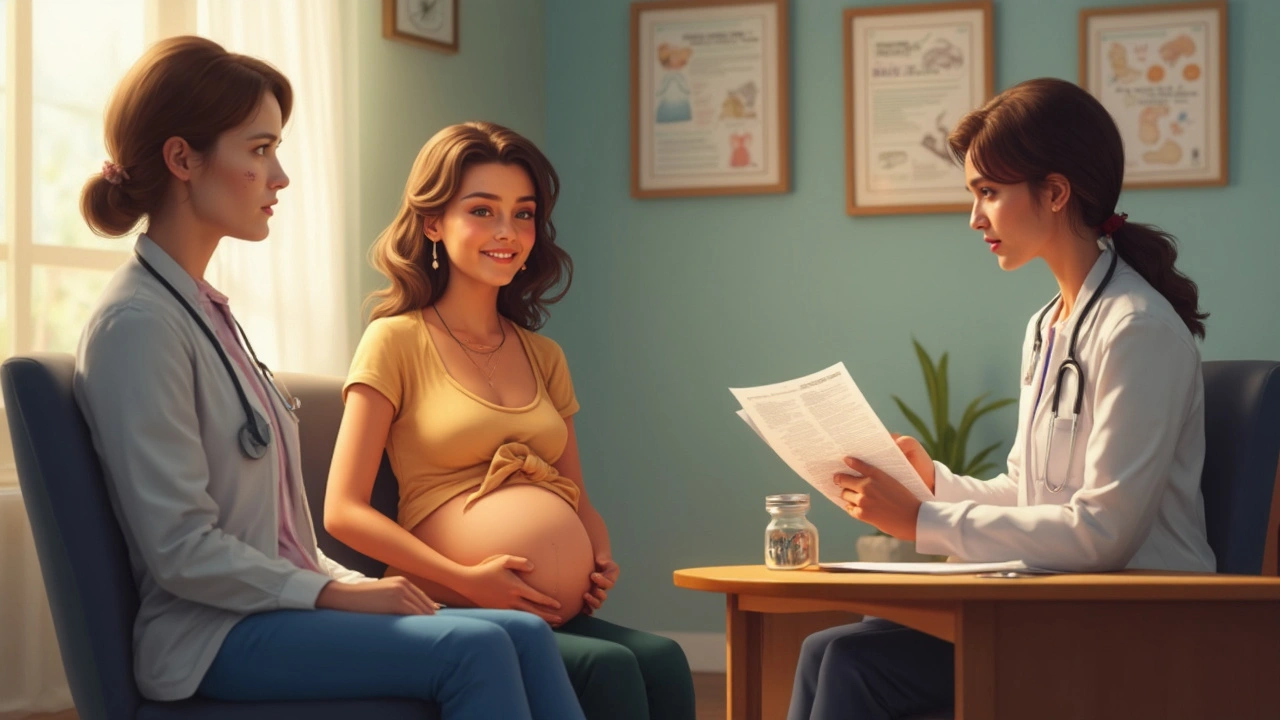Hodgkin's Disease: What You Really Need to Know
Hodgkin's disease is a type of lymphoma, which means it starts in your lymphatic system—the part of your body that helps fight infections. Most people first notice something's wrong when they feel a swollen lump in their neck, armpit, or groin. This happens because the lymph nodes are getting bigger. Other signs that might pop up include fevers that come and go, night sweats (like soaking your sheets), losing weight without trying, or just feeling tired all the time.
If you’re worried you might have Hodgkin’s disease, the only way to be sure is with a doctor’s checkup. Usually that means some blood tests and a biopsy, where they take a tiny piece of the swollen node to look at under a microscope. It’s not something you can figure out at home or with a simple blood test online, so see a real doctor if symptoms stick around.
Here’s the good news: Hodgkin’s disease is one of the most treatable types of cancer, especially when you catch it early. Most people get a mix of chemotherapy and sometimes radiation therapy. The treatment plan depends on which stage the cancer’s in. Doctors have gotten really good at helping people not just beat this disease but also get back to something close to a normal life. Still, treatment can be tough—hair loss and tiredness are common, but talking to people who’ve gone through it really helps. Cancer support groups (both in person and online) can be a lifesaver when it comes to sharing tips and just feeling less alone.
Everyday stuff matters too. Simple changes—like washing your hands more often and skipping crowded places during chemo—can really cut down your risk of getting infections. A balanced diet and gentle exercise (even just slow walks) can help keep your energy up. If your appetite drops, smaller, more frequent snacks are easier than big meals. Remember, nobody expects you to be a superhero; take it one day at a time and don’t be shy about asking for help when you need it.
One thing doctors really stay on top of is side effects. Chemo and radiation can mess with your immune system, so you might get sick more easily for a while. You may also notice changes in your mood or memory—‘chemo brain’ is real and lots of people feel a bit foggy during treatment. Stay in close touch with your health team; tell them about new symptoms as soon as you spot them. They can help you manage anything from mouth sores to sleep problems before they get worse.
Science keeps moving forward. New treatments, like immunotherapy and targeted therapy, are in the works and already making a difference for some people with Hodgkin’s. If the first treatment plan doesn’t work, there are still more options to try. Nobody wants to deal with cancer, but no one has to face it alone—and real hope is out there.

Hodgkin's Disease and Pregnancy: What You Should Know
Navigating Hodgkin's disease during pregnancy is challenging but manageable with the right support and information. This article explains what happens when Hodgkin's disease meets pregnancy, the safest treatment options, and how both the mother and baby's health can be protected. You'll also find practical tips about fertility and planning for the future. Clear advice, up-to-date facts, and guidance from real-world medical experiences are included. Perfect for women facing tough decisions or those just wanting to understand more.
view more